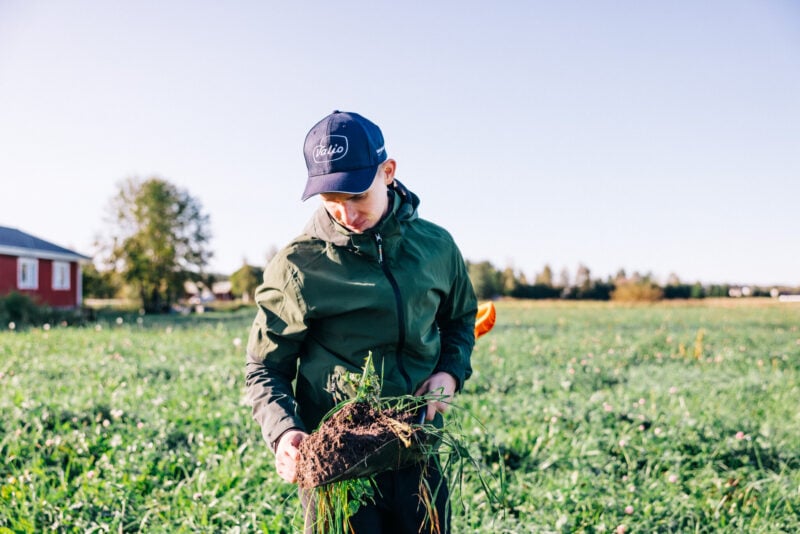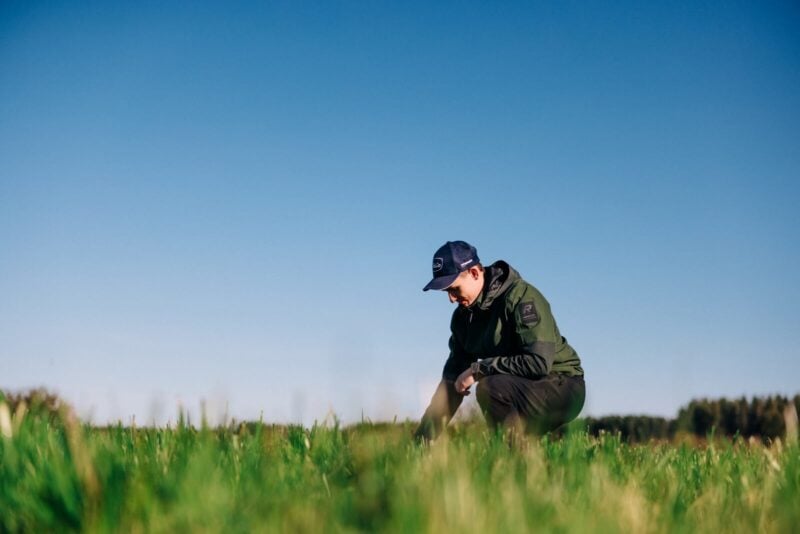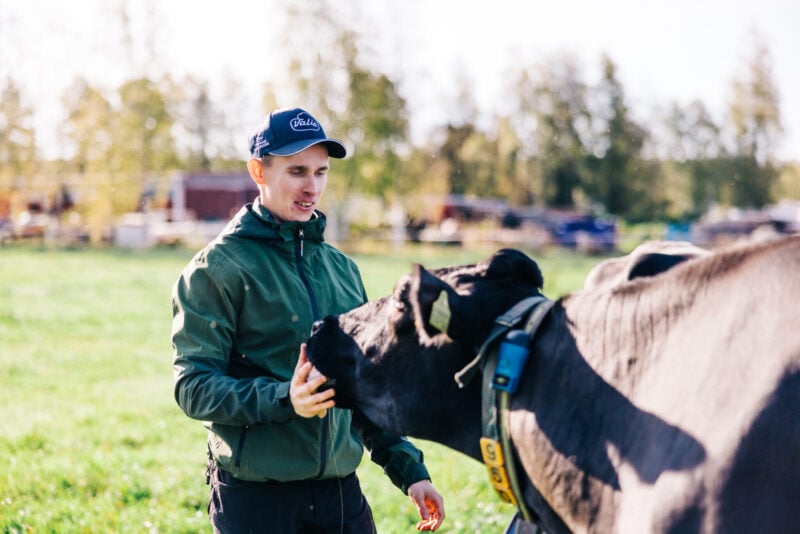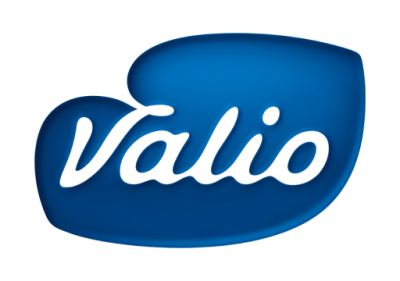The Luoma farm is exploring ways to reduce emissions in the Carbon-Neutral Dairy Farm pilot: “It’s an honour to provide a place for research”

Jaakko Luoma from Kauhajoki takes a moment for office work in between the daily chores of the farm. 28-year-old Jaakko Luoma has been running the Luoma agricultural enterprise farm with his parents Jukka and Virpi Luoma since 2021. For the young dairy farmer, the future of milk production in Finland is very important.
“I want to continue the work on our farm and to develop and expand it. That’s why I became an entrepreneur. I also think it’s important to be involved in developing the whole sector and figuring out if we can find new ways to carbon neutrality also for other farms.”
This is the objective that the Luoma agricultural enterprise is aiming for in Valio’s five-year Carbon-Neutral Dairy Farm pilot. The Luoma farm is one of four farms participating in the pilot. The pilot is testing in practice how various environmental actions can be implemented in the everyday work of a dairy farm, what impact they have on reducing emissions, and what their cost impacts and benefits are. The aim is to zero carbon emissions from milk production.
Luoma believes that the pilot will also strengthen consumer confidence in milk production and its environmental targets.
“It shows that concrete actions are being taken in the industry and are being used to improve operations.”

Research at farms in different parts of Finland
Luoma is pleased that the pilot is being carried out on ordinary dairy farms and that various farms from different parts of Finland are involved.
“When you research things at farms, you are in the right place. The change will be made at the dairy farms. It feels great and interesting to be part of the pilot. It’s an honour to be part of conceptualising innovative solutions and to give the opportunity for doing the research.”
The Luoma farm has been monitoring its carbon footprint for four years with Valio’s Carbo® Farm calculator. The carbon footprint is now 0.76 CO2e/kg ECM, i.e. slightly lower than the average for Valio farms. According to Luoma, the carbon footprint has been reduced by improving productivity.
“I expect that the pilot will provide us with new ways to bring our carbon footprint closer to zero.”
Carbon farming and solar energy in use
Carbon farming methods are used on almost all of the Luoma farm’s fields. One fifth of the farm’s electricity is generated by solar energy. The cows are fed Bovaer, an additive that reduces the production of methane during the digestive process.
“Biogas operations are of great interest. However, it cannot be done as the farm’s own activity; it would require collaboration among multiple farms. We are still monitoring this situation.”
In the autumn or next spring, equipment that measures the release of carbon dioxide from the soil will be installed in Luoma’s field.
“It will give us information about the field’s carbon sequestration capacity. There’s very little data of this kind available from Finland. We think it’s important that we can provide a place to carry out the research.”

At least so far, Jaakko Luoma has not found it to be a lot of extra work to influence the carbon footprint.
“We’re doing carbon farming anyway and we think about the choice of species and crop rotation. Development certainly takes an effort, and we shouldn’t become complacent.”
Towards carbon neutrality
Luoma is confident that reducing the carbon footprint will improve business profitability, at least through higher prices for the end product. But this will not happen overnight, as it takes time to implement changes in the fields and in the barn.
So, does Luoma believe that it is possible to reduce the farm’s carbon footprint to zero over the five-year pilot?
“It is possible, but it will take a lot of work. You have to accomplish new things every year. We will certainly get close to zero. The zero target is challenging, but possible.”
